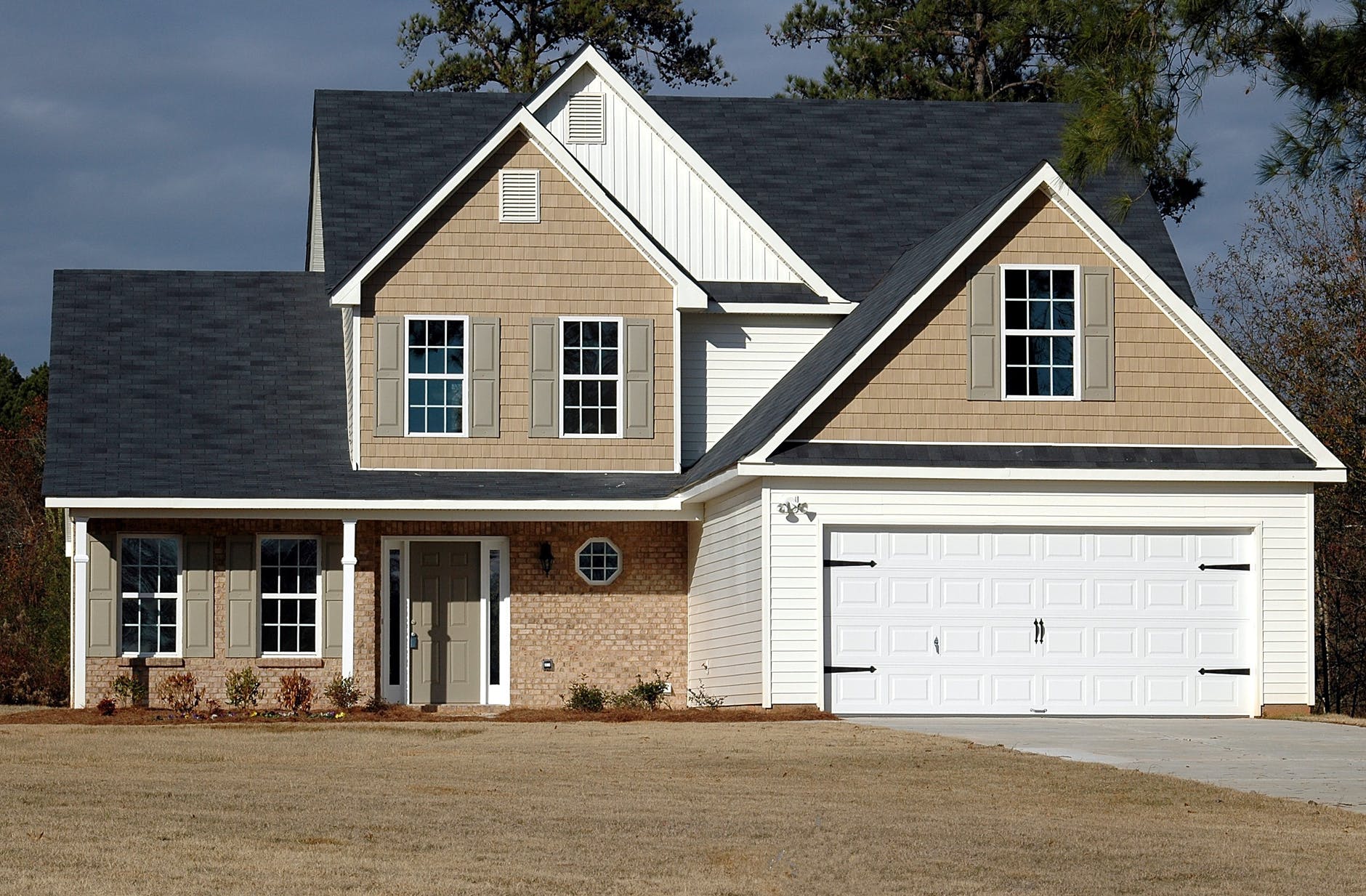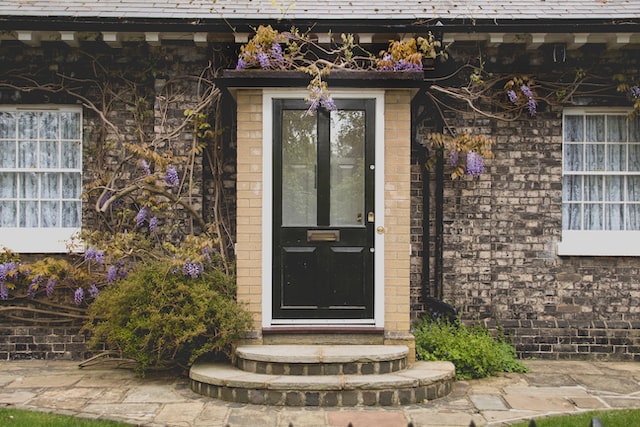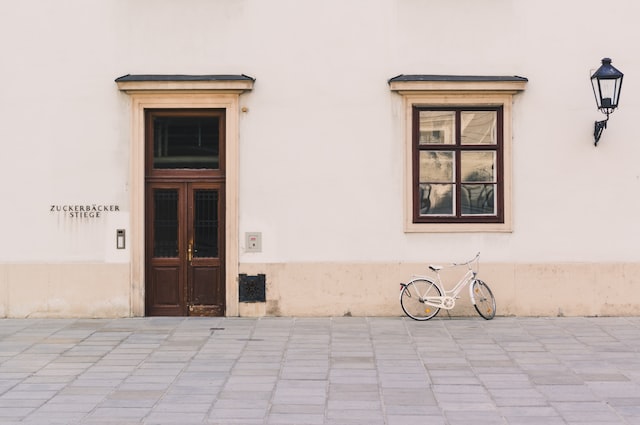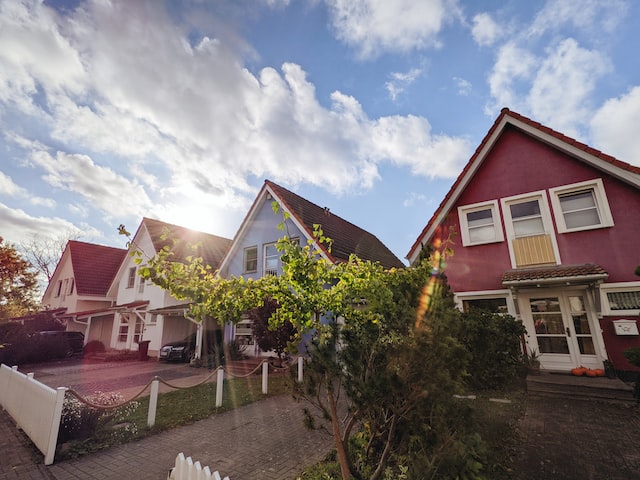When it comes to the word estate, you might think of a ranch property with an expansive house, a few buildings, and a parcel of land. In any case, this term holds a distinctive meaning. So what is an estate? How is the estate formed and should you invest in the real estate market? Let’s find out together with RealEstate-Prep in this article!
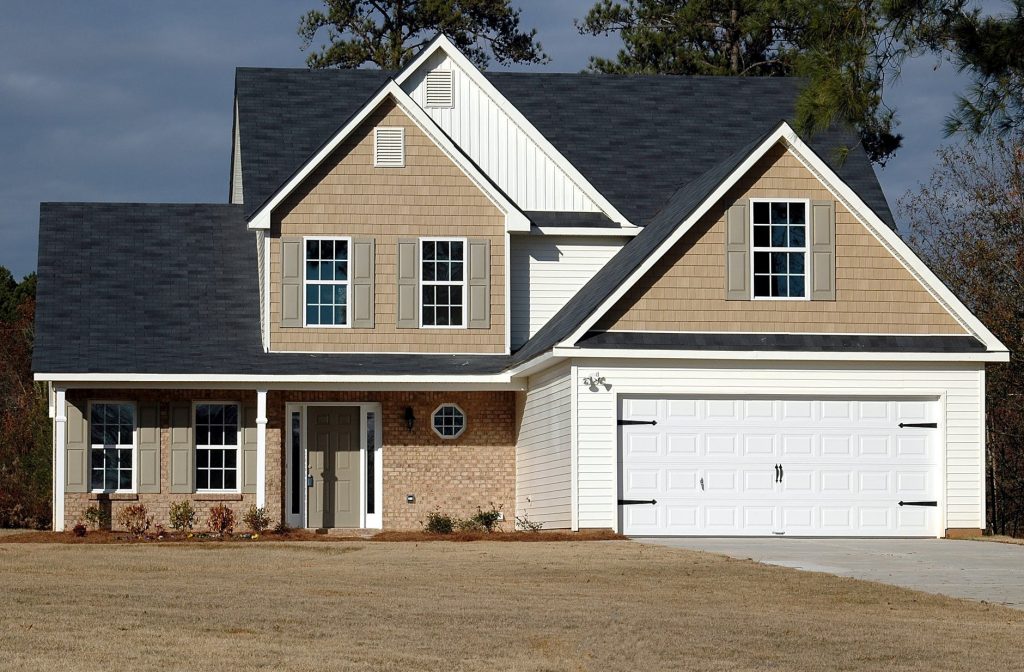
What Is An Estate?
So what is real estate? Real estate is a legal term (in some countries such as the United Kingdom, Canada, Australia, the United States, and the Bahamas) that includes land and anything permanently attached to it. Things that are considered permanently attached such as houses, garages, structures above, or oil and gas, and mineral deposits below that piece of land. Houses and constructions attached to land are considered real estate derivatives from the original real estate, because of which houses and constructions are located. Things that can be removed from the land such as mobile homes, tents, and temporary houses are not considered real estate.
Attaching a movable property to a house or construction work must have a purpose in order to complete those objects. The attachment of movable property to a house or construction work must be performed by the person having the right to such house or construction.
Real estate is closely related to finance and capital and is clearly distinguished from the word movable. If you own real estate, you have every right to the land itself and everything associated with it. Including use for business or lease, building a house, resell, escrow, etc.
How Is An Estate Formed?
Real estate is most commonly shaped through the method of alienation. This is often essential in case somebody willingly exchanges land. When these trades are made against someone’s want, as in the case of liquidation, and they are constrained to give up their property, it is often considered involuntary alienation.
Numerous types of real estate can be shaped through the method of bequest arranging, which ordinarily alludes to the planning of a will. Through estate arranging and planning, an individual considers the esteem of everything claimed and chooses what will happen to it within the occasion of his or her passing. How a person chooses to partition the property and who it’ll go to when are questions that are replied to amid the bequest arranging. In the event that an individual dies without planning an official will, the descent of this person has the right to settle the estate. This is the common method that the state uses to decide what should be complete with all possessions.
Wanna get your North Dakota real estate license, let’s take our free North Dakota Real Estate Practice Exam!
What Are The 4 Types Of Real Estate?
In addition to the real estate definition, we also have a way to classify real estate. Currently, real estate is classified into 4 types: real estate with construction investment, real estate without construction investment, specially real estate and pur autre vie estate.
Real estate with construction investment
Real estate with construction investment includes residential real estate, factory real estate, commercial and service works, infrastructure real estate (technical infrastructure, social infrastructure), office real estate, etc. Real estate with construction investment, real estate group (including land and property estates) is the basic group of real estate, accounting for a very large proportion.
They have a complex nature and are influenced by many subjective and objective factors. In fact, this group has a huge influence on the process of industrialization, as well as national progress, and even sustainable urban development. Moreover, this group of real estate accounts for the majority of transactions in the real estate market in our country and all over the world.
Real estate without construction investment
Real estate in this group is mainly agricultural land (in the form of means of production). Specifically, non-construction real estate can be agricultural land, forest land, aquaculture land, rare earth, salt-making land, unused land, etc.
Featured real estate
A typical real estate is a collection of properties that may include family churches, national conservation sites, temples, shrines, cemeteries, and tangible cultural assets. The capacity of this type of real estate to engage in the market is the lowest. Classifying of the real estate market is really important for the creation of processes and regulations for the growth, as well as administration of the real estate market.
Pur autre vie estates
Pur autre vie estates is a special form of real estate, which gets its name from the French (meaning for another life”). Pur autre vie estates will often have multiple owners throughout their establishment and existence.
Read more: How to invest in real estate?
What Are The Features Of Real Estate?
The information above has partly answered the basic information about real estate. Below are the characteristics of real estate, to help you to understand deeply about this field.
Individuality and scarcity
Real estate has the property of land, and that is why it is scarce. Land is a limited resource in terms of area, territory, and area, among other things. Consequently, real estate is immovable, moveable, and plainly becomes a one-of-a-kind commodity.
Not as simple as what real estate is, this property is expressed in a more specific way. So how are the scarcity and unique nature of real estate expressed in practice? Let’s take a closer look at the following examples.
A real-life example is two pieces of land A and B located next to each other, belonging to an area. If it were a normal good, A, and B might be equivalent. But both are real estate commodities, so the two pieces of land have very different elements and are not considered the same or equivalent.
Moreover, whether these two plots of land A and B share the same architectural design on the ground or possess different characteristics, the real estate aspect will be different. The reason for this is that each piece of real estate is unique, and no two plots of land are the same, of course. Many real estate investors have taken use of this characteristic. They use the distinctive traits of the land to make their real estate more appealing to buyers. And it works, as we can see!
Wanna get your Pennsylvania real estate license, let’s take our free Pennsylvania Real Estate Practice Exam!
Durability
Real estate is durable and lasts over time because the land is a precious resource bestowed by nature and cannot be destroyed. It is possible that structures can exist in a few dozen to hundreds of years. The meaning of durability of real estate is the longevity of the building and the architecture built on it. The lifespan of real estate is classified into economic life and physical life.
Physical longevity provides more economic benefits in the long run. When the structure or architecture has been damaged which leads to no longer preserving the bearing structure, the economic benefits will cease. Different from physical life, economic life is shorter as it could terminate in the normal functioning of the market. According to the average estimate of studies, real estate has a life expectancy of about 40 years for houses, hotels, etc. Other structures such as ordinary houses and factories have a slightly longer life expectancy, about 45 years.
With their durable nature, real estate assets are used for many different purposes. Because of this nature, real estate becomes a commodity with characteristics that never run out or run out, are diverse, and are abundant.
Subject to mutual influence
If you have answered the question of ”what is an estate”, then you will imagine that it will be influenced by another real estate. The impact between properties is even more pronounced. One property can have a huge impact on other properties.
You can consider real-life examples to better understand this issue. For example, in an area, the local state or investors construct modern and high-class infrastructure and architectural facilities. This will make this area more beautiful, adding economic value and services. Therefore, other real estate located in the same area will increase the use-value as well as attract more investors.
In short, properties can support and add value to each other and are influenced by each other. This also makes a property of real estate applied and brings many benefits to investors.
Wanna get your Tennessee real estate license, let’s take our free Tennessee Real Estate Practice Exam!
Heterogeneity
Every person born on earth needs a place to live. How residential land is associated with human life affects the views and ways of looking at the problem of each buyer, including their needs. Suppose two properties are located in the same area, but their prices depend on when the sale is made, whether the buyer likes it or not, how the buyer’s mentality is at the time, and the specific characteristics of the property.
Can Immovable Property Be Transferred?
In terms of the movable and immovable properties of the property, we can know that an asset can be transferred from immovable property to movable property as follows:
- First: The property is the interior decoration of the house. When it is attached to the house and cannot be moved, it is considered real property. But if it is removed by the owner and moved to another place, it is called movable property.
- Second: Similar to the above case for trees, when it grows on the land in a healthy way, it is considered real estate. But if it is harvested for timber and brought to factories, it is now considered movable according to the displaced nature of the property. When it comes to the factory, that log is selected by the customer and made into a cabinet brought home and attached to that house, it will not be moved anymore, it will be converted back to real estate.
In short, between immovable property and movable property based on the movable and immovable nature of that property determine which cases are considered movable and which are immovable. So what makes a house an estate? Some permanent assets cannot be moved such as houses, or construction works, it is always real estate.
Read more: How To Start A Real Estate Business Effectively In 2024?
FAQs
What does the term “estate” encompass?
An estate includes various types of assets, such as real estate properties, bank accounts, investments, personal belongings, vehicles, and any other valuable possessions.
Is an estate limited to physical assets only?
No, an estate also includes intangible assets, such as intellectual property rights, royalties, patents, trademarks, and even digital assets like cryptocurrency or online accounts.
What happens to an estate after someone passes away?
After someone passes away, their real estate will go through a legal process called probate. During probate, the deceased person’s assets are managed, debts are settled, and the remaining assets are distributed to the person (or entity) who is designated to receive the benefits of property owned by someone else, according to their will or the laws of inheritance.
What is the difference between probate and non-probate assets?
Probate assets are those owned solely by the deceased person, requiring court supervision for distribution. Non-probate assets, such as assets held in a living trust, joint tenancy, or assets with designated beneficiaries (e.g., life insurance policies, and retirement accounts), pass directly to the beneficiaries outside of probate.
Conclusion
This article has provided you with the answer to the question of what is an estate as well as all the most basic things that a beginner to learn about real estate needs to know. Hope the above sharing will help you get useful information about this field. In addition, if you’re planning to obtain a Real Estate license, let’s get started with our Real Estate practice exam pack on this website to improve your chances of passing your actual real estate exam the first time.

